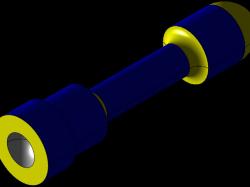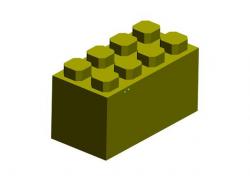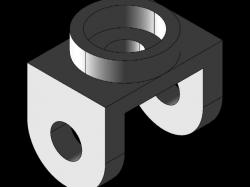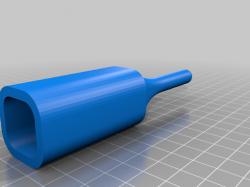 3D Models
3D Models 3D models
3D models 3D MODELS
3D MODELS 3d models
3d models 3D MODELS
3D MODELS FingLonger
FingLongerUnderstanding Finglonger 3D Models
Finglonger models are available in various designs and complexities. These models are inspired by the device from the animated series Futurama, intended to extend the reach of a human finger. While the design is humorous, it’s a great example of how 3D printing can bring imaginative ideas to life.
How to 3D Print Finglonger Models
3D printing a finglonger requires considering the material and settings:
- Material Choice: Flexible TPU (Thermoplastic Polyurethane) is commonly recommended for its durability and flexibility, which are key characteristics for the functionality of a finglonger.
- Printer Settings: To ensure the best quality, adjusting settings like infill percentage and wall thickness is crucial. A balance between strength and flexibility is important. For instance, a model might be printed with two walls and 5% infill to achieve the desired flexibility.
- Post-Processing: After printing, some cleaning up of the model might be necessary, especially if there are supports used in the printing process.
Most Frequently Asked Questions
- Q: What material is best for printing a finglonger?
A: Flexible TPU is often recommended for its flexibility and strength. - Q: Can I modify the design of the finglonger?
A: Yes, many 3D models are customizable. You can adjust the size or add features using 3D modeling software. - Q: Do I need a high-end 3D printer to print a finglonger?
A: Not necessarily. Even basic 3D printers can handle such models, though the quality of the print may vary.
In conclusion, 3D printing a finglonger is a fun and intriguing project that highlights the capabilities and versatility of 3D printers. Whether you’re a fan of Futurama or just interested in unique 3D printing projects, the finglonger offers an enjoyable challenge. Remember, the key to a successful print lies in choosing the right material, adjusting your printer settings appropriately, and being ready to do some post-processing for the perfect finish.
